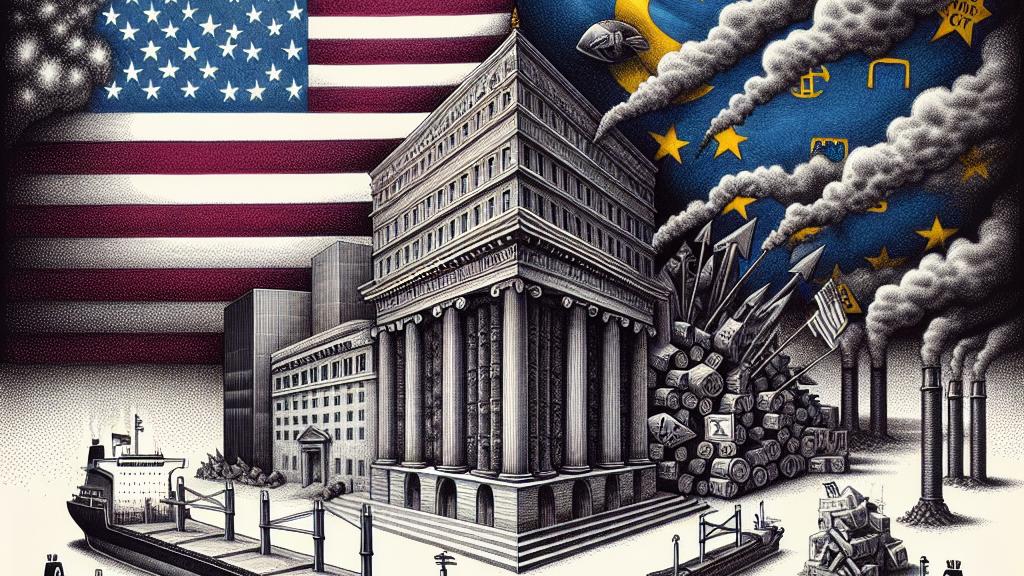US Treasury Imposes Sanctions on Gazprombank in Response to Ukraine War
Overview
- The US Treasury has taken decisive action by imposing stringent sanctions on Gazprombank, intensifying the economic pressure on Russia due to its ongoing conflict in Ukraine.
- These sanctions freeze Gazprombank's assets and put a full ban on trade with American entities, effectively isolating the bank from the US financial system.
- As the Biden administration ramps up its efforts to counter Russian aggression, this move underscores the unwavering commitment to supporting Ukraine and holding Russia accountable.

Background of the Sanctions
In a bold step that underscores the severity of the conflict in Ukraine, the US Treasury announced comprehensive sanctions against Gazprombank, one of the largest banks in Russia and a key player in its financial operations. This institution, which is partially owned by the state-controlled gas giant Gazprom, has been instrumental in processing substantial transactions for natural gas exports to Europe. With these sanctions, the US is not only freezing Gazprombank's assets but also prohibiting American entities from engaging in any trading activities with the institution. This signals a critical turn in US policy, responding to repeated pleas from Ukraine for stronger financial actions against Russia's economic backers. By targeting Gazprombank directly, the US aims to cripple an important lifeline that fuels Russia's military endeavors.
Strategic Implications
These sanctions do more than just punish a single bank; they reflect a broader strategy to undermine Russia's military capability and inhibit its ability to finance the ongoing war. Alongside the measures against Gazprombank, the Treasury has also set its sights on over 50 smaller financial institutions across Russia, aiming to sever the country’s connections to the international banking network. This dual approach not only highlights the determination of the Biden administration to exert economic pressure but also raises significant concerns for foreign banks that might consider maintaining relationships with these designated entities. As the sanctions framework expands, institutions worldwide must navigate this increasingly complex landscape, where even casual interactions with targeted banks could lead to disastrous compliance risks.
Wider Impact on Global Economy
The ramifications of these sanctions are set to echo well beyond Russia's borders, affecting global economic conditions in profound and sometimes unpredictable ways. Countries around the world, especially those reliant on Russian energy imports, are bracing themselves for possible shortages and soaring prices. For example, recent data shows that European nations, which have historically depended on Russian natural gas, are scrambling for alternative sources, thus risking inflation and economic instability. Moreover, the ongoing war has already led to disruptions in food supply chains, with Ukraine being a critical exporter of grains to the world market. As NATO and the EU bolster their sanctions regimes, we're witnessing a seismic shift in international economic relationships. This evolving landscape not only spotlights the challenges posed by the Ukraine conflict but also emphasizes the necessity for global unity against aggression.

Loading...